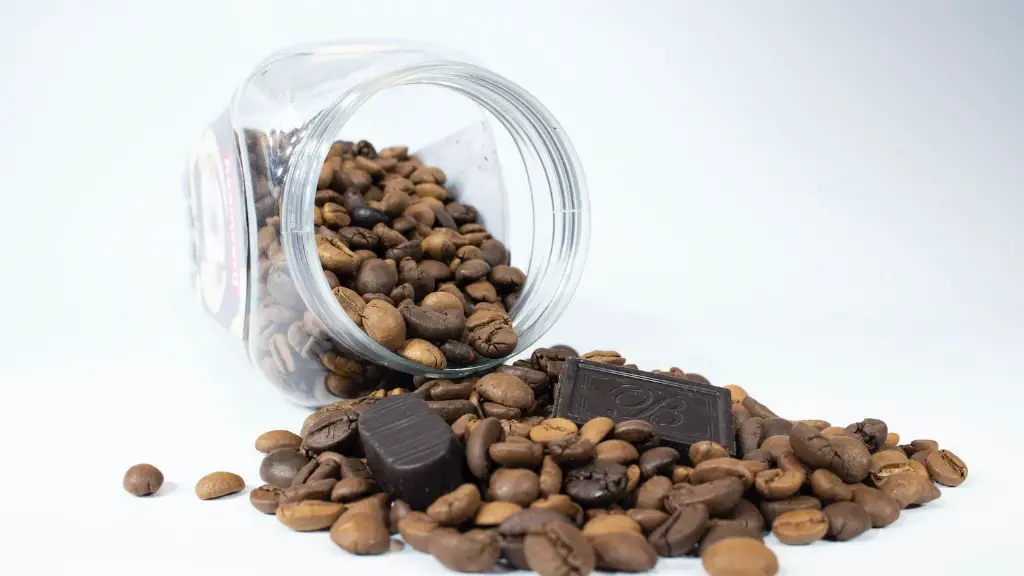Can You Drink Coffee When You Have Gout?
Gout is a type of arthritis that is caused by high levels of uric acid in the blood and joints. People who suffer from gout often experience a lot of pain, stiffness, and inflammation in the joints, especially in the feet, ankles and knees. While there is no cure for gout, proper diet and lifestyle changes can help to reduce symptoms and manage the condition. But one of the questions many people with gout have is, can you drink coffee when you have gout?
The first thing to understand is that while research has not definitively answered the question of whether or not coffee is good or bad for gout sufferers, it is generally accepted that moderate consumption of coffee every day is unlikely to make gout worse. In fact, some research suggests that drinking coffee in moderation may even be beneficial for gout sufferers. One study, for example, found that people who consumed two or more cups of coffee a day had a lower risk of developing gout than those who drank none or less than one cup.
However, it is important to note that some medications for gout can interact with coffee in a negative way. People with gout should speak with their doctor or pharmacist before drinking coffee to make sure there is no risk of interactions.
One way to reduce your chances of developing gout is to maintain a healthy weight. Research has found that obesity is a major risk factor for gout and other forms of arthritis. People who are overweight are more likely to develop high levels of uric acid in the blood, which can lead to gout. Fortunately, drinking coffee can be a good tool for weight loss. Studies have found that people who drink coffee tend to have a lower body mass index (BMI) than non-coffee drinkers, suggesting that coffee can help to reduce your risk of developing gout.
On top of this, coffee contains certain antioxidants that can help reduce inflammation. This can help reduce pain, swelling and stiffness in the joints for people who suffer from gout. However, it is important to note that these effects are typically seen when drinking caffeinated coffee, not decaffeinated.
Finally, it is important to remember to drink coffee in moderation. Excess caffeine can lead to dehydration and other negative health consequences, so it is important to be mindful of how much coffee you’re drinking. Keep in mind that caffeine can also interact with certain medications for gout, so it is best to speak with your doctor or pharmacist before drinking coffee.
Drinking Coffee Smartly
When it comes to enjoying coffee while managing gout, the consensus is that drinking coffee in moderation and with a few considerations is reasonable. Here are some tips for drinking coffee smartly when you have gout:
- Drink in moderation: Above all else, it is important to drink coffee in moderation. Limit yourself to one or two cups per day, as drinking more could be too much caffeine for your body.
- Choose the right type: While decaffeinated coffee contains antioxidants, it typically does not offer the same anti-inflammatory benefits that caffeinated coffee does. Choose caffeinated coffee when possible.
- Watch your sugar intake: Sugar can contribute to inflammation and other negative consequences in your body. Avoid adding sugar to your coffee and opt for healthier sweeteners like honey or stevia.
- Eat gout-friendly foods: Eating a gout-friendly diet is essential for managing the condition, so make sure you’re eating plenty of fruits, vegetables, lean proteins and complex carbohydrates.
Gout-Friendly Alternatives to Coffee
If you’d like to cut back on coffee or switch to something else altogether, there are some gout-friendly alternatives. Here are some to consider:
- Herbal teas: Herbal teas such as green tea or chamomile can be a great option when you’re looking to cut down on coffee consumption. Herbal teas are packed with antioxidants and have anti-inflammatory properties.
- Coconut water: Coconut water is another great option that contains natural electrolytes and can help hydrate your body. Coconut water is also low in sugar and provides a refreshing, gout-friendly alternative to coffee.
- Water: This may seem simple, but it is important to stay hydrated when you have gout. Carry around a reusable water bottle and make sure you’re drinking plenty of water to keep your body functioning properly.
Making Gout Management Easier
Gout can be a debilitating and painful condition, but there are ways to manage it. The key is to understand the causes and be aware of how lifestyle choices can affect the condition. One of the important questions for many people with gout is whether or not they can drink coffee. While research has not concluded definitively whether or not coffee is beneficial or detrimental to gout sufferers, drinking in moderation and with a few considerations can be helpful. Alternatives such as herbal teas and coconut water can be great options to switch out your coffee consumption and help make gout management easier.
Identifying Foods That Increase Gout Flare-Ups
It is important to identify which foods may trigger a gout flare-up. Certain foods are known to increase uric acid levels in the body and could potentially worsen gout. These include:
- Organ meats: Organ meats like liver, kidneys, tongue and sweetbread are especially high in purines. Purines are compounds that are broken down into uric acid in the body, so it is best to avoid them when you have gout.
- Sugary drinks and high fructose corn syrup: Sugar is known to increase inflammation in the body, so it is best to avoid sugary drinks and foods that contain high fructose corn syrup.
- Refined carbohydrates: Refined carbohydrates like white bread and pasta can also increase inflammation in the body, so it is best to limit your intake or choose healthier complex carbohydrate options like quinoa and sweet potatoes.
Benefits of Exercise and Weight Loss
Exercise and weight loss can be beneficial for people with gout, as they can help to reduce inflammation and improve overall health. Weight loss has been shown to reduce uric acid in the body, while exercise can help to improve circulation and range of motion in the joints. Exercise can also be beneficial for managing pain levels and reducing anxiety and/or depression.
When it comes to exercise, it is important to find activities that you enjoy and that you will stick to. Light to moderate activities such as walking and swimming are great for gout sufferers. Yoga is another great option for improving flexibility and range of motion, without putting too much strain on the joints.
Finding Support
Managing gout can often feel overwhelming and it is important to find a support system to help you through the process. Talking to your doctor or a nutritionist can be a great way to learn more about the condition, as well as understanding which foods and lifestyle choices can help to manage your symptoms.
Gout support groups can also be beneficial for finding emotional support and connecting with individuals who are dealing with the same challenges. The Arthritis Foundation, for example, offers various support groups for individuals with gout and other forms of arthritis.



